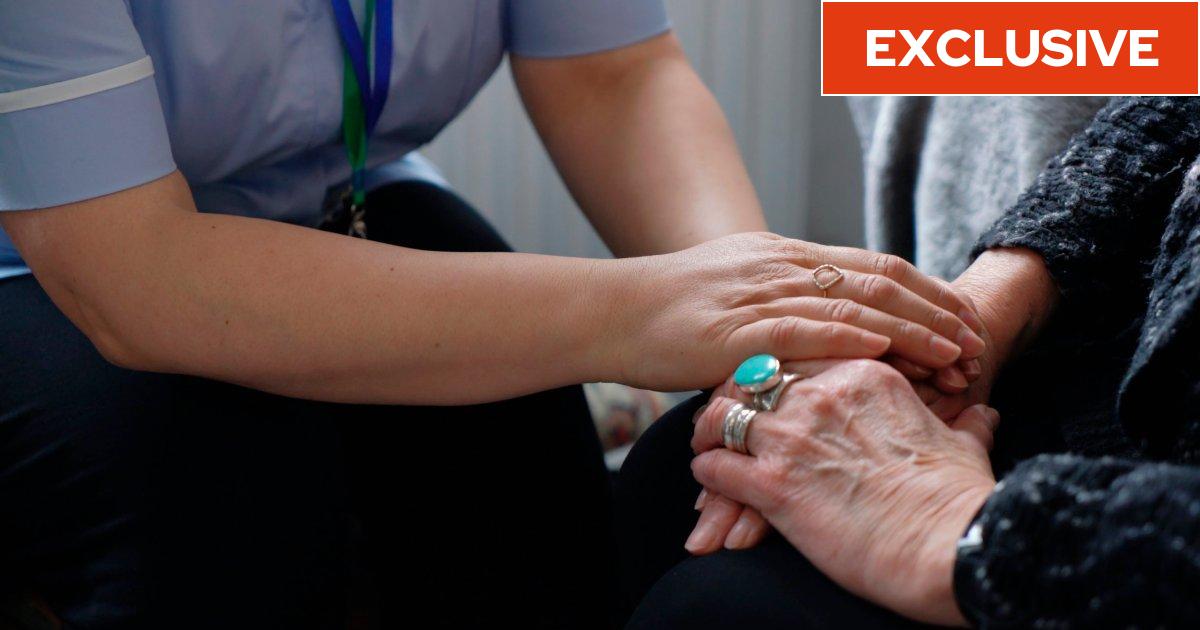PM suggests initial reforms to struggling social care sector could be fast-tracked to as early as 2026
Artificial intelligence sensors that can send an alert if a vulnerable person has fallen at home or missed a meal are to form a major part of the plan for social care, Wes Streeting will suggest when he announces a new training programme for staff.
A qualification for social care workers, on using the cutting-edge technology, is to be unveiled by the Health Secretary on Wednesday.
He will argue that increased reliance on such tech could free up care workers’ time, relieve workforce shortages, and keep elderly people in their homes for longer.
As part of the new Level 5 Digital Leadership Qualification, staff will be trained to use AI to automate routine tasks such as note-taking, or predict when a patient might need additional care, The i Paper can reveal.
They will also be taught to use video calls to carry out remote appointments with doctors and carers, to reduce the need to travel.
Elderly people living on their own who fall at home can often be left helpless for hours until neighbours or care staff are alerted. Meanwhile, bed-blocking, caused by elderly patients who are fit for discharge but are awaiting a care package or care home, is a major cause of the NHS backlog.
It is hoped that over the long term, the longer people can be kept in their own homes, the less reliant on hospital or care home stays they will be – as well as happier.
Trials of AI sensors have been taking place in Sutton, south-west London, to track a patient’s movement, as well as learning their routine, such as when they eat and which appliances they use. The technology can detect changes in behaviour and send an alert to family or carers.
In February, the BBC reported that 1,287 households were using the system in Sutton and 1,800 falls had been detected over the past year.
Marianne Linehan, whose 86-year-old mother-in-law Margaret has the system, told the BBC that she can check up by using an app.
“I can look in in the mornings and detect her movements throughout the night and know that she is moving, she’s not on the floor or nothing drastic has happened,” she said.
Care homes in other parts of the country are also trialing technology that can help detect if someone needs help in the night.
Last month, AI sensors that can predict if a patient is vulnerable to falling were rolled out across the NHS. The at-home tech monitors health signs, and alerts family or carers if it thinks someone is likely to fall.
The NHS says the software can reduce hospitalisations by 70 per cent. In a statement, it said: “Falls are the largest cause of emergency hospital admissions for older people, with estimates that around 30 per cent of people aged 65 and above – 2.5 million people – and around half of those aged 80 and above, will experience a fall at least once a year.
“These falls and fractures account for over four million bed days a year at an estimated cost of £2bn.”
Meanwhile, the Prime Minister has suggested that initial reforms to the struggling social care sectors could come as early as 2026.
Sir Keir Starmer was asked by MPs on the Commons Liaison Committee whether people would have to wait until 2028 – when a major review of social care is due to publish its recommendations – to see improvement. The independent commission on adult social care, led by Baroness Casey, is due to begin its work imminently. It will look at recruitment and retention of the workforce.
Starmer indicated he would be moving faster than that, pointing out that the review led by Casey is due to make an interim report in 2026.
“Louise is starting her work this month. I’ve asked her to do her work in two stages. The second of the stages is, what are the major reforms that are needed, and therefore the cross-party work needs to be done,” the Prime Minister added.
Speaking at trade union Unison’s health conference, Streeting will outline plans to “harness the full potential of cutting-edge technology to transform social care, helping people to live independently in their own homes and improving the quality of care”.
The training will consist of three modules, taking roughly 120 hours to complete .It aims to give adult social care managers more confidence and capability to then adopt the latest technology in their organisation.
The qualification will not be mandatory but funding will be available via the Learning and Development Support Scheme, announced in 2024, which supports adult social care employers to invest in their workforce.
The boost in technology comes alongside wider policies to improve recruitment and retention in a sector that has been grappling with a workforce crisis for years.
New job roles will be introduced – registered managers, personal assistants and an enhanced care worker role.
The Government aims to make the social care profession more appealing by offering a long-term career, and a clear path for progression and development.
It is also seeking to recognise the special, complex demands that social care work entails for staff.
Ministers have already announced a fund of £12m to pay for new courses and qualifications.
Unison’s head of social care, Gavin Edwards, said: “Improved learning, training and development opportunities and a clear career path for care workers are good moves for the Government to make.
“For too long, the social care system has operated without the shared standards or funding to allow proper investment in skills and qualifications. That’s left many working in care frustrated that their NHS colleagues don’t always recognise their expertise.
“But these new opportunities still rely on a fragmented, profit-driven sector. For reforms to make the biggest difference, workers need a fair pay agreement and better still, a national care service.”
